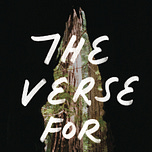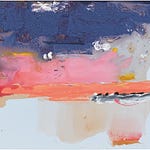Still in practice period at Upaya, one more week until sesshin, when we’ll be entering into silence. Our next poet for April might have something to do with that…
Spending hours tending to the zendo, noticing a level of focus previously devoted solely to painting and writing. Flower arranging. Altar cleaning. Offering yoga in the afternoons.
With my hands moving in front of me, subtle insights are gleaned in those silent work hours, intimate inward connections to carry me into my elder years, facing habit energy of wanting to save, be helpful, be involved. Gah. By committing to practice, the simplest adherence to the forms, disappearing into the one body of this sangha, my mind opens.
Seeing how I relate to the past, to my ancient, unconscious motivations. To my lineage. Sitting, bowing. Savoring every second as the postures and gestures of dignity and respect take root more surely within my being.
Practice shows me how important it is to just be.
Welcome to Holding Nothing; thank you for being here. If you choose a paid subscription, you’ll have access to the entire archives, you’ll be able to comment on all posts, and also attend our monthly Live Gatherings, during which we have talks, writing and discussion time. If you have financial restriction, scholarship subscriptions are available. Don’t hesitate to ask.
An honor to introduce Jacqueline Suskin as we continue our month of poetry together. Poet and educator, Jacqueline has composed over forty thousand improvisational poems with her ongoing writing project, Poem Store. Author of nine books, including The Edge of The Continent Volumes 1-3, Help in the Dark Season, Every Day is a Poem, and A Year in Practice, she’s an ecstatic earth-worshiper living in Detroit where she brings nature poetry into classrooms with her Poem Forest curriculum, via InsideOut Literary Arts.
Thank you, Jacqueline. What a gift you bring to the children.
After she sent me her books, I was instantly smitten. The intimacy of her writing, the universality of her invitations—she reminds me of what it means to care.
The Verse for Now, sings of interconnection and agency, which aligns with my current chaplaincy candidacy and practice. Exploring interior and planetary upheaval through verses on interconnection, grief, and the transformative power of deep listening to the earth, this collection is worth our while here. I’ve chosen a handful of pieces, which I’ll read to you and include below.
Sharing a note from Jacqueline, and a couple of stellar reviews first.
I asked two questions:
When do you recall thinking you should / could write poems?
I started writing poems before I knew what they were. I have notebooks overflowing with little five line explanations of crabapple trees and tulip beds. I couldn’t stop filling the pages of journals before I even knew how to properly shape my letters. It was as if I just carried poetry with me from the very beginning.
What is your writing practice?
My writing practice is heavily affected by the seasons. I pause for certain times of the year and find my way back to a rhythm during others. Sometimes I write in my journal every day, sometimes I edit poems on the computer, and I also just let the verses build inside of me, ready for them to come out when they say it’s time. My practice is a devotion to curiosity and detail. It grows as I grow, with self-reflection, with early mornings set aside for quiet contemplation, with a pen and paper always nearby.
Jacqueline Suskin writes:
Beyond the self / and their satisfaction sits / in the center of each bloom... and like Suskin, all good and curious writers are so agilely positioned: beyond the self, at the center of their own bloom. Her writing unfurls slowly, methodically, patiently as each breath is taken with a deep exhalation, as well as a hunger to know the self and the Earth with better intimacy. The Verse for Now offers us a moment of tender reprieve, it is a book to remind us of all the bright possibilities that still exist. We are alive in such crucial times, may we mark each day with the openness that Suskin explores and writes with. This book is a beautiful prayer.
—Fariha Róisín, author of Survival Takes a Wild Imagination
What is it to love a place—and then leave? In her ninth book, Suskin wanders further inward than ever before, with a voice that is older, wiser, perhaps a touch more weary. Here, we are invited to witness this brilliant poet’s poignant rumination of all that stands to be lost in this world, even the earth itself. The Verse for Now is a collection of longing, of frustration. It is a lurching, howling cry—to be held, to hold, to make sense of what lingers in the dark. But it is also an effort to dig beyond despair in order to find hope. This book is Suskin as we’ve never seen her before—feral, yes. Wild. But also vulnerable, unsure. A soft creature, asking what comfort is there / in this decaying world—that is, what remains, at the end of everything? The answer Suskin offers us is simple, moving, profound: love.
—Suzanne Honda, author of When We Were Birds
And here is our handful of selections from The Verse for Now.
Lift Up the Infinite Unrolling Blankness
One thing is true: A reflection
is happening all around us.
A Divine replication.
We are it
watching itself.
Trickster with the wretched
gift of the mind, its finest joke.
We are summoned to ascend
into action, creation bursting
from our hammers and saws.
Each craft links to another
and our structures get complicated
as we erect the world.
Why make anything at all
if the sum is just unrolling blankness?
The trees laugh along with the wind
and we dump our confusion
on the little wing of blame.
See how it goes nowhere?
Each day, all around the world,
we lose our sense of purpose
and feel flat, null, and then
we keep on breathing.
We stare with our shared emptiness
and suddenly the rooster’s song, again,
another meal to cook, another nail
in another board.
Go ahead and be a rafter—hold up
the grand experiment why don’t you?
If we say no in unison
it’ll still persist, so we may as well lift.
New Moon
Leather jacket and snake skin boots.
An outfit for a grocery store run.
I blast country music and drive
like a careful maniac. I come home
and put my body on the wet green ground.
I notice the ticks before they bite.
I fill the bathtub with pink roses.
I liberate the puny fruit trees from their cages
and haul loads of manure to fertilize them.
I position a hose for each tree
to get a good long drink.
A hummingbird hovers over
the shimmering stream.
I dance and sing while I whack and pull and dig.
I evoke the bodily strength of my dead best friend.
I sing the songs he loved most.
When the giant cypress branch crashes down
and blocks the driveway, I heave the logs
into a pile, arms bare, smelling of sweat.
The new moon says
keep up the work of discernment and release.
Beauty Over and Over
We make art to convince each other
that life is worth living. Remember why?
Because cold plum, because other person, because
questions, light through windows, bird bones
so small, babies growing inside, seeds
that do so much because of sun. We say here
is beauty over and over, up against the rotting
log, up against the numbered days. Look at the sky,
cloud, woven rug, and well-made boot. Even
in the shadow, even in the cold, the rose
continues blooming. I cry and look ugly
but it’s pretty, too. Death brings blood
but oh wow the red, the flowing, the temperature.
The wind moves metal, the unseen air
causes dancing, and even in the worst of pain
a dead flower all moldy is brilliant with some
proof of happening, some hue of having lived.
The Verse for Now
I don’t care about dying alone.
The other realm will unfurl
its tongues of color, and I’ll slope
toward it as a sinking mountain.
But come to my table while I’m breathing
and celebrate me because who else is like this?
I’ll cheer you on the same way and bake
cakes in your honor because who has those
eyes, so open and ready, who has that spirit
so steeped in carefulness?
Tenderly, I set the lace under each plate
and buff the silverware. Soup bowls, tea cups,
the paintings with the handmade frames.
Look how well I uphold life as a gift!
I kneel before it all and you are part of that—
I’m saying you’re holy, you’re God. Why not?
When I’m gone will you read my words
and remember how well I lit the world
in praise of the world? Will you cry
with thank yous and recall my meanness, too?
Who cares? I’m gone now and books
will disappear and it isn’t for the memory
that I make it all, it’s for right now.
Dear reader:
Posing questions Jacqueline asks through her work; feel free to comment so she can read and respond here along with you. Comments are open and we’ll both be here to read and respond.
Can you accept yourself as planetary, at once vast and cosmic, while equally small and animal?
What guidance might exist in a moment of contemplation while kneeling beside a rushing creek, walking midwestern streets, writing poetry, or sitting with an old growth redwood, as our earth cries for help?

















Share this post